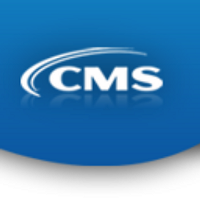 By Shantanu Agrawal MD, Deputy Administrator/Director for Center for Program Integrity &
By Shantanu Agrawal MD, Deputy Administrator/Director for Center for Program Integrity &
Jennifer Main, Director/Chief Financial Officer for Office of Financial Management
Twitter: @CMSgov
The Centers for Medicare & Medicaid Services (CMS) is dedicated to reducing health care costs while, at the same time, making sure people get access to the right care, when and where they need it. CMS established the Comprehensive Error Rate Testing (CERT) program to calculate the Medicare Fee-for-Service (FFS) program improper payment rate. Due to the successes of corrective actions we put into place to address improper payments for inpatient hospital services, the overall Medicare FFS improper payment rate decreased from 12.1 percent in 2015 to 11.0 percent in 2016. Improper payments for inpatient hospital claims alone dropped a whopping 58.3 percent from 9.2 percent in 2014 to 3.8 percent in 2016. Inpatient hospital claims accounted for $10.45 billion in improper payments during the 2014 report period (July 1, 2012 to June 30, 2013) but was reduced to $4.42 billion during the 2016 report period (July 1, 2014 to June 30, 2015), an improper payment decrease of $6.03 billion.
Two major policies, intensive provider education, and improved oversight contributed to the reduction in improper payments for inpatient hospital claims. First, CMS changed its policy to allow hospitals to bill for Part B (Medical Insurance) services given during a hospital inpatient stay when an inpatient admission is found not to be reasonable and necessary. Second, CMS clarified policy for when an inpatient admission is generally appropriate for payment under Medicare Part A (Hospital Insurance) by establishing and modifying the “Two-Midnight rule.” The Two-Midnight rule applied to admissions beginning on or after October 1, 2013, and established benchmark criteria that should be used when determining whether a short stay hospital admission is payable under Medicare Part A. The Two-Midnight rule stated that inpatient admissions will generally be payable under Part A if the admitting practitioner expected the patient to require a hospital stay that crossed two midnights and the medical record supports that reasonable expectation.
Along with these policy changes, CMS put into place a comprehensive educational campaign to help providers comply with the regulations. After a limited number of “probe” audits of each provider’s short stay claims for Part A payment, Medicare Administrative Contractors (MACs) sent letters to the providers detailing the results of the probe audit and offered one-on-one education to further discuss the errors and encourage a change in future billing behavior. Providers with moderate or major error findings were engaged in up to three additional rounds of review and education to encourage greater accuracy with future claim submissions.
CMS is building on these corrective action successes by exploring opportunities to implement prior authorization and pre-claim review programs. We plan to continue monitoring those services whose payment vulnerabilities drive the improper payment rate, like home health and inpatient rehabilitation claims, to more effectively target our provider education and medical review efforts.
While CMS is pleased with the reductions we’ve already seen in the improper payment rate, we remain committed to collaborating across CMS to address potential vulnerabilities identified through our improper payment measurement programs and continuing to strengthen our program integrity efforts.
This article was originally published on The CMS Blog and is republished here with permission.
